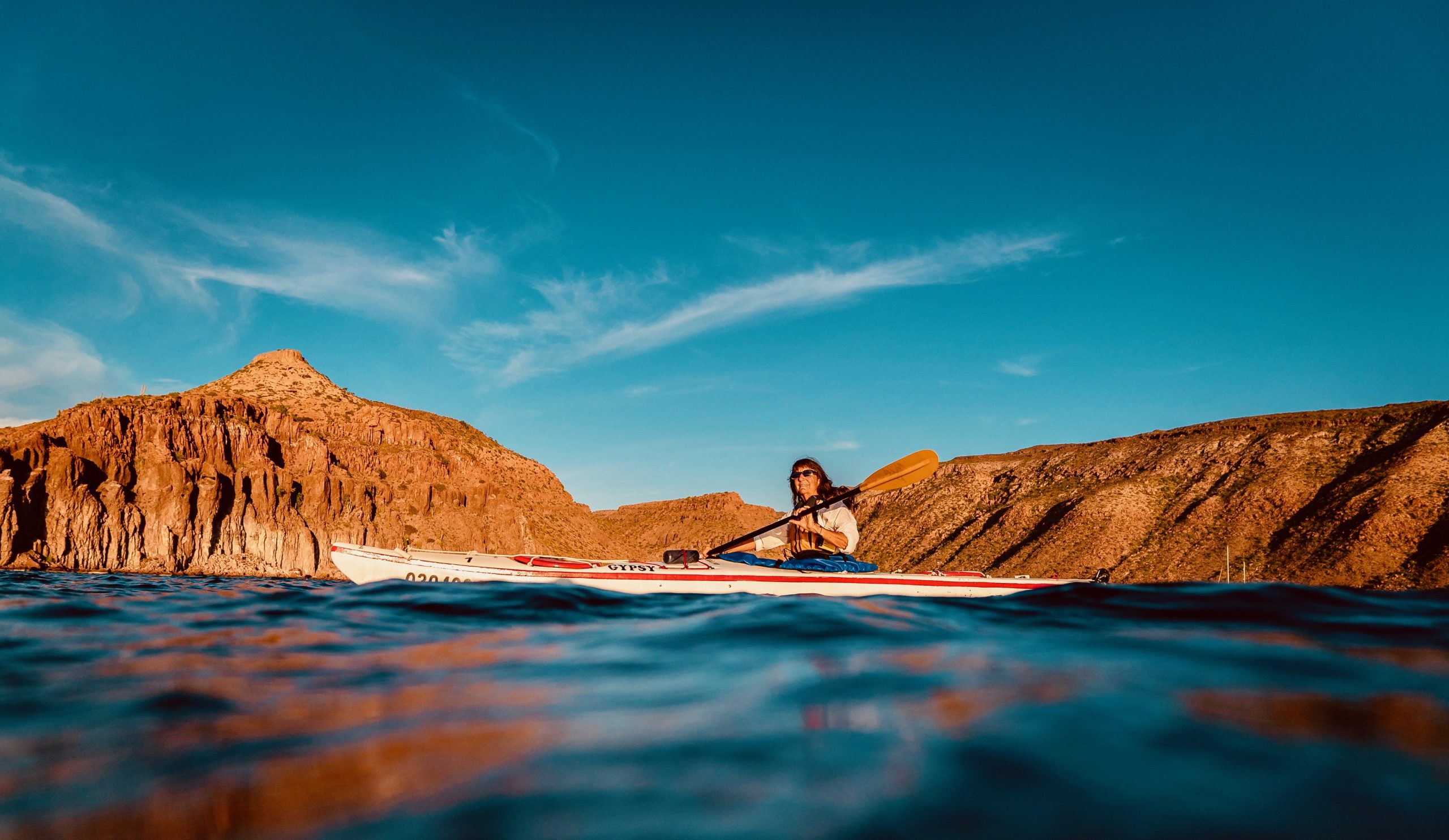Guide Site Login
Please enter password to view the guide site



(Story appears here courtesy of Haiku Magazine)
Living in an urban area can make us feel out of touch with the resources that sustain our lives, but the water has always been incredibly therapeutic for me. Before I joined ETC in the late eighties, I had been a schoolteacher and whitewater rafting guide. Being intimate with the rhythms of the ocean and connecting with marine life—whether it’s with a great blue heron or a humpback whale—puts into perspective our part in the universe.
Outdoor adventures pull people together into a community, especially those who are not used to being out in nature: it takes a village to make it all work. In the great outdoors, I feel whole and at home. I love seeing other people feel that way too, especially those who don’t get out as much.
When we launched the adaptive sea kayaking program in the eighties, there were a lot of paddling adaptations we had to make. What happens in rough waters if a paraplegic in a kayak flips? How do you create a grip system so that a quadriplegic can hold on to a paddle? How does a blind person paddle alone?
If someone capsizes, we right the flipped kayak, assist the kayaker with re-entry, and quickly pump water out with a bilge pump. For blind paddlers who are ready to paddle in a single kayak, we attach a radio playing music on the back of another kayaker for them to follow. ETC has several physical and occupational therapists who are volunteer guides and help us brainstorm solutions, such as adaptive paddle grips.
Outdoor adventures can be transformative and a great equalizer. I remember one participant, Jim, who became a paraplegic in his teens, working for the railroad in the Midwest. A train car door fell off its hinges and crushed him. After a long healing process and adjusting to life in a wheelchair, Jim began researching the Aleut history of the kayak. He found a traditional kayak builder in Washington to make him a boat, and we went on a few expeditions.
Kayaking was a lifesaver for Jim. He told me, “When I discovered kayaking, I felt like I grew a kayak where my useless legs were.” He felt like he was one with the boat, which is how the Aleuts described themselves during hunts. Water and the ocean allow us to see a reflection of who we are but also to reinvent ourselves.
I love that ETC is a microcosm of the way I imagine an ideal world: inclusive, adaptive, encouraging folks’ inner strengths, and offering opportunities to work together, play together, and feel whole together.
(As told to Brent Crane)
Diane Poslosky is the executive director of Environmental Traveling Companions (ETC), a San Francisco-based organization that empowers disadvantaged youth and people with a wide range of disabilities through outdoor exploration.